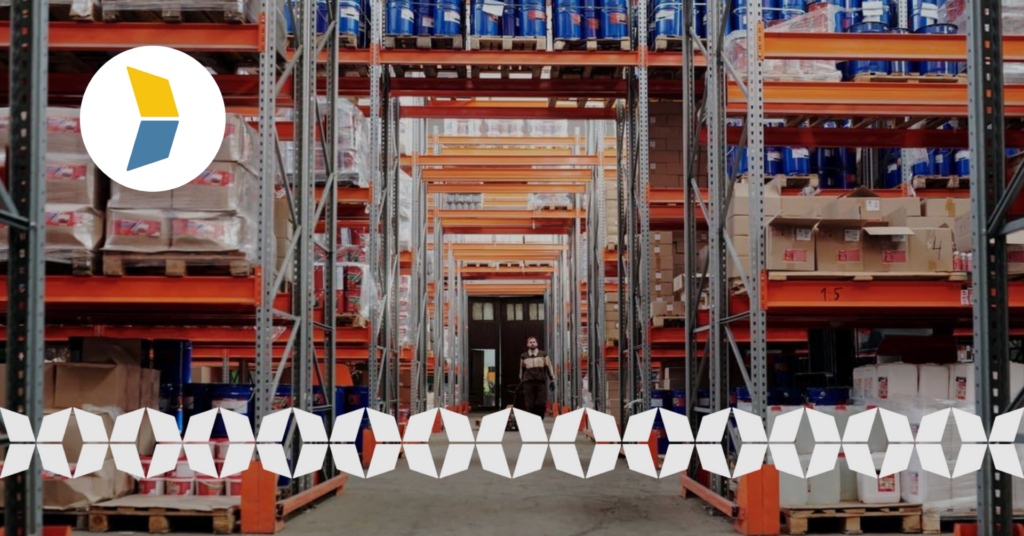FBA preparation can be frustrating. You’re running low on inventory at the Fulfillment Center, and orders are coming in, but you’ve struck a bottleneck. You decide to outsource your FBA prep but are overwhelmed by the options. You’re handing over part of your company to a third party, so you want to make the proper decision.
To help you out, here’s how FBA prep works, why many sellers outsource it, and how to choose the right FBA prep service.
What is FBA Prep?
Merchants who deliver merchandise to FBA can’t just stuff it in a box and hand it to a courier. Your merchandise must meet many standards to be accepted at the Fulfillment Center. Some inventory rules are category-specific.
FBA prep prepares inventory for Amazon. Some merchants, especially those importing goods, additionally provide an inventory inspection.
FBA prep is crucial. Amazon won’t accept your goods if you get them wrong, and you’ll have to pay to return them. If a faulty product is mistakenly sent to consumers, they may protest and return it. If complaints mount, your listing may be muted or your account suspended.
Should you outsource FBA prep?
You can complete FBA prep yourself, pay Amazon, or outsource it.
FBA prep is complex and easy to mess up. By outsourcing, you give it to specialists. Your FBA prep service should know the procedure and ensure your goods complies with Amazon’s guidelines, reducing the risk of rejection. This is especially crucial if it’s your first time delivering inventory to FBA because you never realize how complex a procedure is unless you try it and make mistakes.
Amazon’s myriad requirements make FBA preparation time-consuming. Instead of acquiring fresh things, you’ll be assessing stock, manufacturing packaging, and printing labels.
1. Does your fulfillment center offer FBA prep?
First, while seeking Amazon FBA prep services from a 3PL, you must ask if FBA prep is a crucial service. This may seem silly, but experience matters. Universal fulfillment experience is not the same as FBA prep.
Need an experienced companion. Before establishing your FBA business with Amazon, you must handle many challenges. Included are:
- Packaging knowledge
- Labeling knowledge
- SLA knowledge
- Knowledge of Amazon’s fulfillment techniques
- FBA user interface knowledge
2. Does the facility have packaging and labeling experience?
Amazon FBA excels at warehousing, inventory management, pick-and-pack, order prep, and shipping. You’re responsible for getting inbound inventory to the fulfillment facility, but you can’t just drive an OTR truck up to their doors. Enrollment criteria include packing and labeling. A third-party prep partner can typically fulfill these quality-driven operations for a fraction of the cost of Amazon.
Make sure your prep partner understands Amazon’s packaging and labeling requirements. The whole set of regulations is a book-length topic, but packing criteria include:
- CDs
- Items polybagged
- Losses
- Large/unusual objects
- Extra packaging (bubble wrap, fill, tape, etc.)
- SKUs
Each pallet or item must have the correct box ID for labeling rules. The label must be the correct size, not on a seam, and accompanied by the shipper’s label. Ensuring your prep partner understands the requirements for inbound FBA inventory can be a Herculean endeavor.
3. Do they understand Amazon’s SLA?
Enrolling in FBA requires you to follow Amazon’s rules and regulations. Amazon’s SLAs contain language that can be adjusted to your company’s situation. The FBA program is highly customizable. Therefore SLAs can be situational.
Given Amazon’s SLAs, your prep partner will help negotiate and outline your FBA agreement.
4. Is there an onsite Amazon Portal expert to help navigate and print labels and process orders?
Experience and familiarity are different. Your potential prep partner may know FBA basics. To accomplish a good job, people need experience. Your prospective third-party contractor must be able to utilize FBA’s interface to ensure accurate labeling and box identification. They must also know how to process orders accurately. Your prep partner needs Amazon FBA experience.
The benefits of working with an FBA Prep service
Smaller eCommerce businesses can benefit from Amazon FBA. FBA prep takes patience. Third-party outsourcing can help retailers transition.
Save effort, time, and money
Inventory prep standards in the market are rigorous. Errors cause delays and fines. Retailers can save time and costs by using FBA prep services.
Don’t pay for storage space
The correct Amazon FBA prep center can provide adequate storage space. Third-party FBA prep centers allow products to bypass a retailer’s headquarters. Since third-party providers distribute merchandise to Amazon, merchants need just visit their contractors to check product quality.
Increase margins
Experts in FBA prep and ship. In half the time, they can do more than a retailer. Since specialists can reduce turnaround times and boost production, Amazon FBA businesses can serve more customers.
FBA prep centers are an investment. This choice has operational expenses. Working with FBA prep professionals ensures full Amazon utilization regardless of the retailer’s size. Finding the correct third-party FBA prep firm is key. How to pick a prep service?
When choosing an FBA prep provider, consider their location and how quickly they can process your inventory. Your business model and sales velocity determine the weight of each factor.
Price
Most sellers choose an FBA prep service based on price. You want the best deal, but it shouldn’t be the sole factor.
First, ask if the prep service charges per item or monthly. Monthly payment may appeal to sellers with huge inventory volumes, while a per-item price may appeal to low-volume merchants.
You’ll want to know what packaging is included, as some prep services charge extra for bubble wrap and poly bags. Know the storage fees and the minimum number of units you must submit to the prep facility at once.
Price isn’t always the most significant aspect of FBA prep services. You don’t want a cheap prep service, but you do want affordable prices. Remember, high costs don’t necessarily stay high. As you learn the preparation process, you can cut expenses by separating jobs between your manufacturer and prep service.
Location
Strategically locate your prep center. If you sell private label products, you may import a lot of inventory from China. Choosing a prep facility near your shipments’ ports is a smart move.
Having a prep center close to home allows retail arbitrage sellers to bring in products themselves or incur cheap trucking costs.
Choose a prep center based on proximity to an Amazon Fulfillment Center with caution, as the Amazon warehouse you ship to can change. Even if you use Amazon’s Inventory Placement Service, this is true. You send all your stock of one product to the same Fulfillment Center, but Amazon can alter the location from shipment to shipment.
VAT
You may have to pay sales tax if you buy from US online stores (online arbitrage). You could save money by choosing a prep facility in a state with no or minimal sales tax.
How? By sending stock directly to prep. If it’s in one of the four states with no sales tax (Delaware, Montana, New Hampshire, Oregon), storage fees may be lower than the tax in your home state.
US sales tax ranges from 0% to 7.2%. Choosing a prep facility in a state with a lower sales tax will minimize your costs.
Warehouse
More sellers are using FBA prep centers to store their inventory and preparing it for FBA.
Sellers do this for two reasons. First, it’s cheaper than holding merchandise at a Fulfillment Center. Sellers keep inventory with their prep service and send products to FBA based on sales velocity. If a seller sends 10,000 products to their prep center and sells 1,000 monthly, they’ll send 1,000 to FBA. The Prep center will store the remaining supply.
Second, is Amazon’s suspension culture. Suspended sellers’ merchandise gets stuck in the Fulfillment Center. Returns cost per item and can take weeks. You (or your prep center) must inspect FBA inventory as part of your Plan of Action. When you’re reinstated, repackage and label your goods and send them in. This is a pricey operation; therefore vendors retain their merchandise at the Prep Center and send in lesser quantities.
If you do this, ensure your prep service can turn inventory around quickly. You should also ask about their insurance; you want your stock protected from fire and theft.
Time-to-process
How quickly an FBA prep provider prepares, your inventory is important. Your speed needs can vary. If you’re holding stock at the prep center and sending it is based on sales velocity (see above), you’ll want units back in 48 hours.
Most prep firms are transparent about processing delays and offer a 24- or 48-hour guarantee. If you can’t access this information, ask. You don’t want your late shipping rate to suffer because your prep provider is slow bringing your product into FBA.
Inspection
Your FBA prep provider should do labeling, packaging, and inspections. This doesn’t replace factory checks, but it can augment them. Consider a pre-shipment examination by your manufacturer. They check 20% of 10,000 units. Your FBA prep service may find faults your manufacturer missed.
Climate
If you sell perishable goods like food, ask any prep service if their receiving and storage facilities are climate-controlled. You don’t want your goods destroyed by improper storage.
Not only perishables. Sending stock to a hot or changeable-weather state requires climate control. Your things could rot or damp if the conditions aren’t maintained properly.
Let Kase handle your FBA prep
Kase is a 3PL that works with online merchants to handle FBA prep. Contact us to learn more about how we can help with fulfillment.


